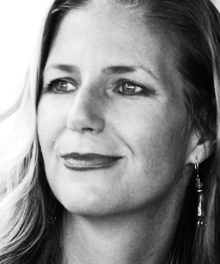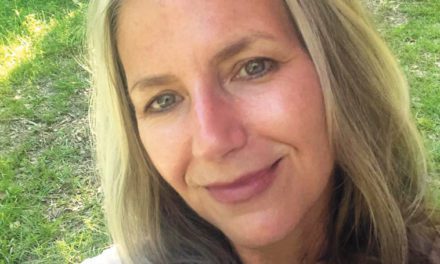 Did you happen to catch the special event in Columbia last week, commemorating the 75thAnniversary of the liberation of Auschwitz? It was live-streamed on SCETV, and I only knew about it because my church choir director was involved in the musical part of the ceremony. He had been asked to arrange a choral rendition of the Jewish folk song ‘Dona, Dona,’ and would be playing guitar with the Clover Choraliers – a phenomenal high school choir from the upstate – as they performed his arrangement.
Did you happen to catch the special event in Columbia last week, commemorating the 75thAnniversary of the liberation of Auschwitz? It was live-streamed on SCETV, and I only knew about it because my church choir director was involved in the musical part of the ceremony. He had been asked to arrange a choral rendition of the Jewish folk song ‘Dona, Dona,’ and would be playing guitar with the Clover Choraliers – a phenomenal high school choir from the upstate – as they performed his arrangement.
It was a Tuesday morning at 10:30, and I had a lot of work on my plate. I decided to tune in to SCETV on my computer, and answer a bunch of email while waiting for the musical performance. I had no idea where it would fall in the program.
As it turned out, ‘Dona, Dona’ came over an hour into the ceremony. And I never got to my email.
Because I was riveted.
Y’all, the keynote speaker was Elie Weisel’s son! Yes, that Elie Weisel – acclaimed Jewish writer, professor, political activist, Nobel laureate and Holocaust survivor. His son, Elisha, gave the keynote address, and it was nothing short of incendiary.
Elisha Weisel began by speaking of his father’s strength, love, and unquenchable faith. This part of his address was deeply inspiring. Then he veered away from his father and began to talk about us. Society. Our current situation. (I’m tempted to call it ‘the late unpleasantness,’ but that seems like bad luck… or tempting fate.)
Specifically, Weisel addressed the recent reemergence of anti-Semitism in the United States, which he characterized – though not in these words, exactly – as the proverbial canary in the coalmine.
“We have never been more conflicted in our values,” he said. “Never more polarized since the Civil War. And as history has taught us, when we let our society be overtaken by the extremes, anti-Semitism betrays the rot in our civilization. When the extremes meet, society collapses.”
Weisel described countless examples of anti-Semitism recently demonstrated by both the far right and the far left, calling out everybody from marching white supremacists in Charlottesville to university administrators to sitting members of Congress. His condemnation was stunning in its ferocity, and especially its scope.
“If hatred from the right feels vicious and cruel,” he said, “hatred from the left feels like a betrayal.”
(At this point I was furiously taking notes. My email could damn well wait.)
After Weisel’s talk, the 282nd Army Concert Band played the haunting theme from Schindler’s List, reducing me to a useless puddle. I managed to pull myself together briefly, but then Holocaust survivor Judith T. Evans came to the podium.
“I was five years old when I stood and saw our synagogue going up in flames,” she began, this tiny, radiant woman with a thick German accent. “I still can remember the shouting. ‘Dirty Jews! Death to the Jews!’ I remember holding my mother’s hand. She looked down to me, and she said, ‘Don’t worry. We are Germans. Nothing will happen to us.’ I was 8 years old when I remember running to the police station, seeing my mother sitting in a police car. She was stretching out her hand, I was stretching out my hand. I never could touch her hand again. She drove away. I never said goodbye. She died in one of the worst camps ever.”
Soon thereafter, Judith lost her beloved grandmother to the camps, and was taken in by a Catholic orphanage. The nuns were good to her, but they taught her to pray the Rosary and only acknowledged her Jewish identity in whispers behind her back. She was sent to German school, where she says she was brainwashed about “how bad the Jewish people were.” Only years after the war ended did she return to her Jewish roots.
After sharing her devastating personal story, Judith – like Elisha Weisel before her – turned her attention from then and there to here and now. “When I look around today at the great nation of America, I see the dividing between us . . . the political dividing, the hatred . . . Hatred is the most contagious sickness in the world. It flows over. When I listen to the media, the one-sided media – ‘It’s my way or no way!’ – it almost reminds me of the brainwashing in Germany. I’m scared. I’m scared of what will happen. We have to do better. We have to learn to talk to each other. To talk to each other about politics, about different ideas. We can do better. I know we can do better.”
Judith reminded the audience that while six million Jewish people were killed in the Holocaust, five million other innocent people lost their lives, too. “Invalids, handicapped children, priests, nuns, gay people, black people, anyone who was different, anyone who spoke against the regime . . . “ She said we owe it to all those people to do better. The six million Jews who died. The five million others who died. “The soldiers who gave their lives to liberate us.” Everybody.
“We say in Hebrew that we are here in this world for Tikkun olam,” she said. “It means ‘to repair the world.’ We can do it. Please, let’s do better.”
For Judith’s sake – and for mine and yours, ours and theirs – please find time to watch this powerful commemoration ceremony at https://www.scetv.org/live/75th-anniversary-liberation-auschwitz-commemoration
According to a 2018 study, 2/3 of millennials don’t know what Auschwitz is. That’s a failure of education that must be remedied, but it’s only a start. The resurgence of anti-Semitism is a telltale symptom of a sick society. The canary in the coalmine, remember? It’s no longer enough to simply say, “Never forget.” We must also do better.
Here and now.





